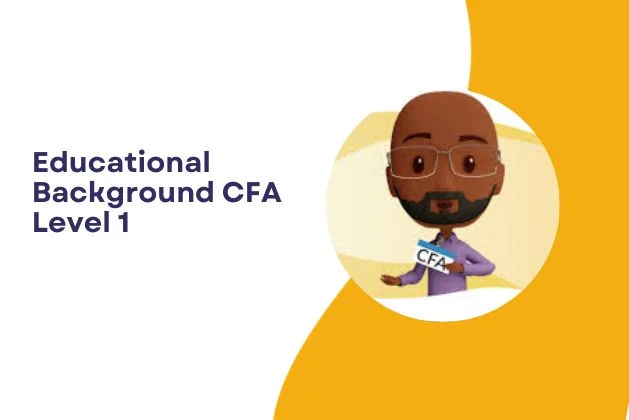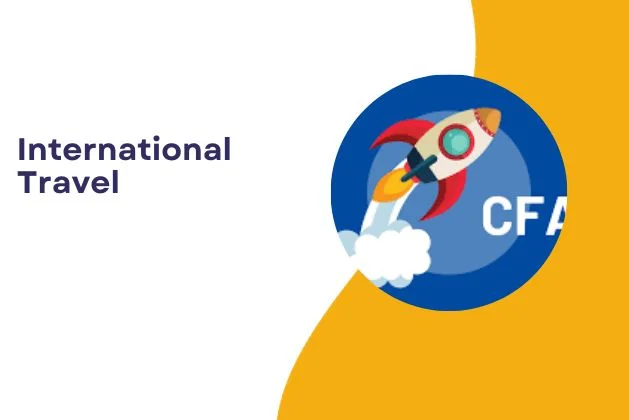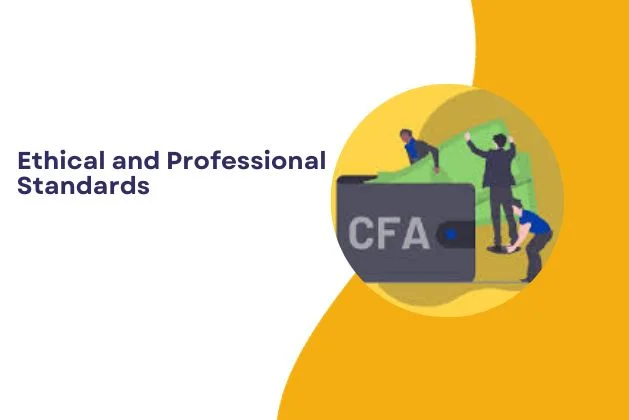Table of Contents
ToggleIntroduction
Beginning the journey to become a Chartered Financial Analyst (CFA) is an ambitious and crucial decision for those seeking a fulfilling career in the world of finance.
With its rigorous curriculum and prestigious reputation, the CFA program is highly respected within the industry, making success at Level 1 a significant milestone for any aspiring financial analyst.
In this blog, we will delve into the intricate eligibility criteria for CFA Level 1, shedding light on the necessary qualifications and requirements one must possess in order to embark on this challenging yet rewarding path.
Through our insights and guidance, we hope to provide valuable information and context to guide aspiring candidates through this demanding undertaking.
Educational Background CFA Level 1

To be eligible for CFA Level 1, candidates must have one of the following:
In order to enroll in this program, it is necessary to have a bachelor’s degree or an equivalent level of education or work experience.
This means that the applicant must have completed their undergraduate studies and received a degree, or have equivalent knowledge and skills acquired through other forms of education or work experience.
Additionally, for those who are currently in their final year of a bachelor’s degree program at the time of registration, it is important to carefully plan their exam schedule to ensure that they will meet the necessary criteria.
This is because being in the last year of a bachelor’s program indicates that the individual has not yet completed their studies and received their degree, but will do so in the near future. Therefore, it is crucial to ensure that all academic requirements are met before enrolling in this program.
It is also essential for applicants to thoroughly review the specified criteria and confirm that their academic qualifications align with them.
Relevant Work Experience

While work experience is not a prerequisite for CFA Level 1, candidates must have:
At least four years of professional work experience or a combination of education and work experience.
Relevant work includes activities such as investment decision-making, financial analysis, or the evaluation of financial risks.
Tip: Familiarize yourself with the specific types of work experience that qualify. Document your work history and responsibilities for validation during the application process.
International Travel

The highly esteemed CFA Level 1 exams are administered in various locations around the world, providing aspiring candidates with the opportunity to showcase their knowledge and skills on a global scale.
However, it is important for individuals to be aware that they may need to travel to a designated exam center in order to take the test.
This means that candidates should be prepared for potential travel arrangements and expenses, which may include obtaining a valid passport if the exam center is located outside of their home country.
While this may seem like an added inconvenience, it actually serves as a testament to the widespread recognition and prestige of the CFA certification.
With exam centers spanning across different countries and continents, candidates have the chance to prove their proficiency in international finance and investment practices.
Furthermore, this also adds an element of excitement and cultural immersion for those who are able to take the exam in a different country.
Experiencing new cultures and environments can provide valuable insights and perspectives that may enhance one’s understanding of global markets and economies.
Tip: Plan your exam location well in advance, considering travel logistics and potential visa requirements if you are planning to take the exam in a different country.
Ethical and Professional Standards

CFA candidates are expected to adhere to high ethical standards and professional conduct.
This includes compliance with the CFA Institute Code of Ethics and Standards of Professional Conduct.
Tip: Familiarize yourself with the CFA Institute’s Code of Ethics and Standards of Professional Conduct.
Understand the principles and commit to upholding ethical standards throughout your career.
Registration and Fees
Candidates must register for the CFA Level 1 exam through the official CFA Institute website.
The registration process involves providing details about your education, work experience, and personal information.
Tip: Register early to secure your spot and take advantage of early registration discounts.
Be thorough and accurate when providing information during the registration process.
Read About: Qualitative Methods of Demand Forecasting
Preparation Strategy
Although effective preparation is not technically a requirement for taking the CFA Level 1 exam, it is a critical factor in achieving success.
This exam, which tests candidates on a wide range of finance and investment topics, demands thorough and strategic studying in order to pass.
Therefore, it is highly recommended that aspiring CFA candidates carefully plan and prepare for the exam before attempting it.
One of the first steps in effective preparation is developing a comprehensive study plan.
This involves setting specific goals and timelines for covering each topic tested on the exam. By creating a structured study schedule, candidates can ensure that they have enough time to thoroughly understand and review all the necessary material.
In addition to utilizing official CFA Institute materials, it is also beneficial for candidates to consider using supplemental resources such as study guides and practice exams.
These resources can provide additional practice questions and explanations that can further enhance one’s understanding of the material.
Conclusion
To embark on the journey of earning the prestigious CFA designation, the first and most crucial step is to have a clear understanding of and meet the eligibility criteria for Level 1.
This initial step requires aspiring candidates to thoroughly review and familiarize themselves with the requirements in order to plan their academic and professional journey accordingly.
Diligence and dedication are vital during the preparation process, as it lays the foundation for achieving success in this challenging program.
By meeting the eligibility criteria, candidates position themselves for a world of opportunities in the field of finance.
The CFA program is highly regarded in the industry, providing individuals with a wide range of financial expertise that can open doors to various career paths.
From investment banking to asset management, this designation is recognized globally as a mark of excellence and competence.
Thus, it is crucial for aspiring candidates to not only meet but also exceed the eligibility criteria set by the CFA Institute.
Frequently Asked Questions (FAQs)
Individuals with a bachelor’s degree (or equivalent) or those in the final year of a bachelor’s program are eligible. Relevant work experience or a combination of education and work experience is also required.
Candidates need at least four years of professional work experience or a combination of education and work experience. Relevant activities include investment decision-making, financial analysis, or assessing financial risks.
Work experience is not a prerequisite for CFA Level 1. However, candidates must accrue the required work experience to obtain the CFA charter after completing all three levels.
Yes, candidates in the final year of a bachelor’s program are eligible for CFA Level 1. However, they must complete their degree before registering for Level 2.
CFA Level 1 exams are held globally, and candidates should be prepared to travel to an exam center. International travel may be required, so candidates should plan accordingly.
Relevant work includes activities such as investment decision-making, financial analysis, or evaluating financial risks. The CFA Institute provides detailed guidelines on acceptable work experience.
There is no specific age limit for CFA Level 1 eligibility. As long as the candidate meets the educational and work experience requirements, they can register for the exam.
Candidates are expected to adhere to high ethical standards and professional conduct. Familiarize yourself with the CFA Institute Code of Ethics and Standards of Professional Conduct.
Registration is done through the official CFA Institute website. Candidates need to provide details about their education, work experience, and personal information during the registration process.
It is recommended to start preparing well in advance. Develop a study plan, utilize official CFA Institute materials, and consider additional study resources to adequately cover all exam topics.



